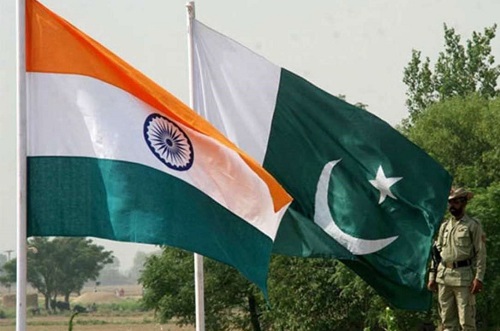Reuters photo
By
Saliha Khalid
Pakistan objected to the Baglihar Hydropower Project on the Chenab River in Doda District, Jammu Kashmir, as it violates the Indus Water Treaty (IWT). The World Bank has appointed an expert to resolve the issue. This idea was put forward in 1992, approved in 1996 and the work started in 1999. The project will have a capacity of 450MW in phase 1 and 900 MW in phase 2. Its cost is about RS 4000 crore. About 2500 crore has already been spent on it. The project was targeted to be completed in 2007.
Pakistan objected to several features of the project because they violate several rights and obligations of Pakistan and India laid down by the Indus Water Treaty regarding the use of waters of the Indus system of rivers. The Indus Water Treaty was signed in 1960 at Karachi in which M Ayub Khan from Pakistan, Jawaharlal Nehru from India and W.A.B. Illif from the World Bank participated. The Treaty worked well until 1980 but after that objections were raised over several projects. Pakistan not only opposed BHP but also the Wullar Barrage/Tulbul navigation project on the Jehlum and some others. These issues are still unsettled.
Pakistan objected over 6 features of the project that are: free board, spillway (gated or ungated), firm power, pondage, level of intake, inspection during plugging of low level intake, and whether the structure is meant to be a low weir or a dam. Pakistan says that India should stop all this work until the issue is resolved. India has refused by saying that there is no provision in the Treaty for the stoppage of this work in waiting until the solution is useless, if we see the history. The IWT has given India the right over the three rivers of Sutlej, Beas and Ravi leaving the control of the other three to Pakistan.
Pakistan’s view is that this project will affect the flow of water in its territory. Pakistan says that India planned the Dam and started construction without the permission of Pakistan as mandated by the Treaty. It will adversely affect the irrigation in Pakistan. Pakistan argues that 450 MW electricity can be created with the gates open. Pakistan fears that its construction can cause floods or drought downstream. Some data was shared in 2003 in the pretty late stage of construction and Pakistani engineers believe that it should be properly named as a dam and that a dam is not allowed as per the Treaty. Pakistan tried every channel provided by the Treaty but India did not change its stance and refused to meet Pakistan’s legitimate concerns.
With insufficient storage capacity, inadequate rainfall and water shortage in Pakistan reached critical proportions and was a major source of inter-provincial disharmony. India claims BHP is a legal scheme and involves no water storage. It denies all the allegations. India says that reduction in the height of the dam will impact the power generation capacity of the project and make this project worthless. India also argues that the statistics provided by Pakistan are inaccurate. India claims that the information was sent to the Pakistan Commissioner in 1992 as required by the IWT. The matter has been discussed in the meetings of PIC held in 1999, 2000 and 2001. India feels that Pakistan is taking a rigid stand despite being informed about the changes in the design.
To Kashmiris the BHP is a project for and by Kashmir, a state in need of power. They believe Pakistan wants to deny J&K’s right to use its own rivers. J&K has never been happy with the IWT. On March 2, 2003, the J&K Assembly passed a resolution asking the central government to review the IWT. J&K finance minister Muzzaffar Hussain Baig, pointed out that the farmers in the state have requested the government to take a strong stand against it. The state has been facing a severe water scarcity as a result of a six year dry spell.
The issue gained momentum at a time when India and Pakistan tried to build a mutual understanding and trust. Both countries have made statements offering full cooperation to the NE and have agreed to abide by his decision. The NE has to answer specific questions posed to him, about whether certain features conform to the conditions laid down in the IWT. He is not expected to make a judgment or propose alternatives, except on request. Diplomats fear that these developments might cast a shadow on the composite dialogue process even though it will not lead to the collapse of the dialogue process.
Saliha Khalid
Saliha Khalid is pursuing her Masters degree in Defense and Diplomatic Studies from Fatima Jinnah Women University, Rawalpindi


No Comments Yet!
You can be first to comment this post!